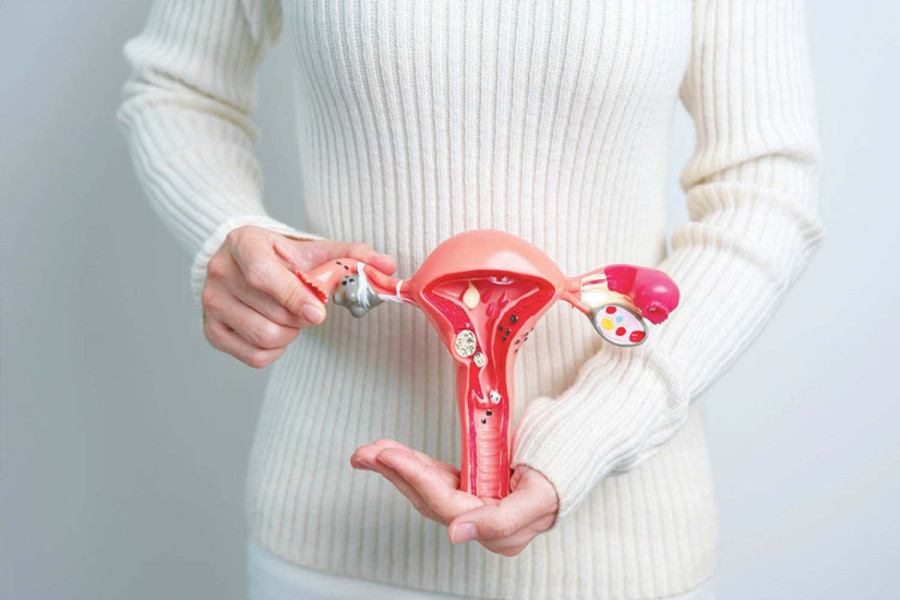Health
Kathmandu metropolis launches free cervical cancer screening
Officials say they are negotiating with Civil and Bir hospitals to provide free treatment for cervical cancer.
Post Report
The health department of the Kathmandu Metropolitan City has started free cervical cancer screening from its urban health promotion centre at Ramghat in the Pashupati area.
For this, the city office hired two gynaecologists, purchased testing kits, and started screening patients along with plans to expand the service to other urban health centres.
“We will also ensure free treatment to women suffering from cervical cancer,” said Deepak Kumar KC, chief of the health department of the metropolis. “For that, we are in talks with the administrations of Civil Service Hospital and Bir Hospital and have allocated a Rs10 million budget.”
Cervical cancer is the second most common cancer in the developing world and a major cause of death among Nepali women. Hundreds of women are diagnosed with cervical cancer in Nepal every year.
Officials at the health department said that any woman concerned about her cervical cancer status could seek free screening at the Ramghat-based urban health promotion centre. The department is also working on starting screening at another urban health promotion centre.
“Apart from free cervical cancer screening, we are also working to support the upcoming nationwide human papillomavirus (HPV) drive,” said KC.
The Ministry of Health and Population is preparing to launch a nationwide drive against HPV from February 4.
Human papillomavirus is a viral infection that spreads through skin-to-skin contact and is a leading cause of cervical cancer.
Apart from providing free cervical cancer screening and treatment, starting this fiscal year, the health department is also planning to collect details of the elderly over 70 years who have been on medication for various non-communicable diseases. Officials said that the plan is to provide medication to such people at their homes, following data collection.
The city office plans to mobilise female community health volunteers and health workers to deliver medicines for the elderly people to their homes.
Earlier, the city office had set up laboratories and physiotherapy equipment in its 32 urban health promotion centres to address the rising demand for physical therapy services. Officials say that both laboratory and physiotherapy services at the municipal health offices are free for needy patients.
The city office provides 98 types of essential medicines—for communicable and non-communicable diseases, including high blood pressure, diabetes, mental health, heart disease, asthma, cholesterol, and respiratory problems—free of cost.
Patients with government health insurance can get over 300 types of medicines from urban health clinics, according to health officials.
Earlier, KMC conducted mental health screening training for doctors and paramedics serving at urban health promotion centres. Officials expressed hope that the move would help hundreds of mental health patients in the city to receive timely treatment.
Although neither federal government agencies nor the city office has data on the prevalence of mental health problems in the metropolis, doctors estimated that many residents could be suffering from various forms of mental health problems including anxiety and depression, among others.
Health workers say that many city residents, despite having mental health problems, do not seek treatment and instead turn to drugs and substances as coping mechanisms. Due to entrenched social stigma, fear of discrimination, and other factors, many patients in Nepal do not openly discuss their mental health issues.
The metropolis has upgraded its urban health clinics to urban health promotion centres and started providing services through medical doctors.
According to officials, the idea behind starting health promotion centres is to provide comprehensive healthcare services to city dwellers, especially those who cannot afford expensive health facilities and costly medicines.




 14.12°C Kathmandu
14.12°C Kathmandu














